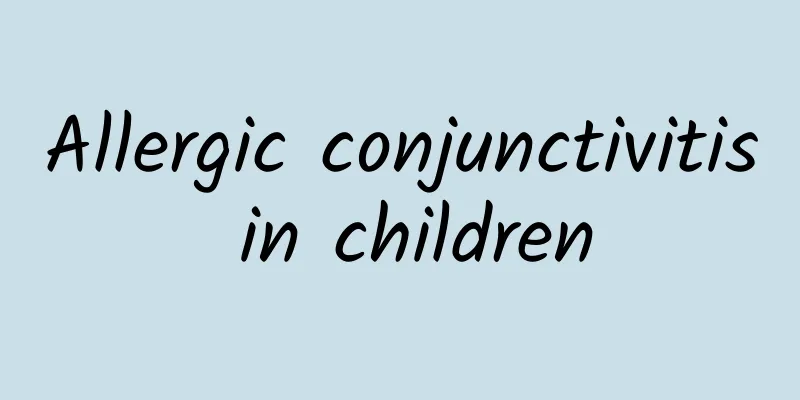Is it good to wash with salt water for vaginal inflammation?

|
After suffering from vaginitis, timely treatment must be sought, and formal methods must be used for treatment. Many people like to use salt water to clean their private parts after suffering from vaginitis. Although salt water has a certain bactericidal effect, it is not effective for vaginitis, and it can also cause adverse stimulation to the vaginal mucosa. Therefore, it is best not to use this method for cleaning to avoid worsening the condition. Prevention of vaginitis 1. Urinate in time: If the bladder is full of urine, bacteria can easily multiply inside. When urinating, the urine will flush away the bacteria in the urethra and vaginal opening, which has a natural cleansing effect. In order to ensure urine volume, you can drink more water and ensure that you urinate every 2 to 3 hours. 2. Avoid contamination: Urethritis is often caused by bacterial infection, the most common of which is inflammation caused by Escherichia coli infection. If the anal area is not cleaned properly, E. coli may enter the urethra through the anus, causing urinary tract infection. Therefore, when women wipe with paper after defecation, they should follow the order from front to back to avoid contaminating the vaginal opening. 3. Supplement vitamin C: Natural vitamin C can increase the acidity of urine, making it difficult for various bacteria that cause urethritis to survive. Therefore, drinking more vitamin-rich beverages such as orange juice, lemon tea, and kiwi juice is very beneficial for preventing urethritis. 4. Pay attention to sexual hygiene: pay attention to the hygiene of normal sexual life and establish good personal hygiene habits. Avoid multiple sexual partners and unclean sexual life. If your sexual partner has a reproductive system disease, both parties need to go to the hospital for examination. If they are infected at the same time, they need to receive treatment together and avoid sexual contact until they are completely cured. Barrier devices such as condoms can be used. Dietary considerations for vaginitis 1. Avoid spicy food Eating too much spicy food (chili pepper, ginger, onion, garlic, etc.) can easily cause dryness and heat, which can cause heat and toxins to accumulate in the internal organs, resulting in symptoms such as swollen and painful gums, mouth sores, short and red urine, burning sensation in the anus, and vaginal itching, thus aggravating the symptoms of this disease. 2. Avoid seafood Fishy foods, such as mandarin fish, yellow croaker, hairtail, black fish, shrimp, crab and other aquatic products can promote damp heat, aggravate vulva itching after eating, and are not conducive to the disappearance of inflammation, so they should be avoided. 3. Avoid sweet and greasy foods Greasy foods such as lard, fatty pork, cream, butter, mutton fat, etc., and high-sugar foods such as chocolate, candy, desserts, cream cakes, etc., these foods help to increase moisture and heat, which will increase the secretion of leucorrhea and affect the treatment effect. |
<<: What medicine is used for vaginitis
>>: What medicine is good for treating fungal vulvovaginitis?
Recommend
Taboos of soaking feet in pepper water
Many people in our lives have the habit of health...
The hair on the legs curls into small black spots
The skin of the leg hair feels smooth, but there a...
Stye symptoms
Speaking of stye, many friends may not know what ...
Big toe pain
Although the various parts of the toes are very i...
Is a heart rate of 50 to 60 normal?
Everyone should have regular physical examination...
Why do my testicles always sweat?
In recent years, there is a very popular saying o...
What to do if you get angry after taking kidney-tonifying medicine
In life, many male friends pay special attention ...
Can honeysuckle cure pharyngitis?
In daily life, many people suffer from pharyngiti...
TCM treatment of premature ejaculation
When premature ejaculation occurs, the patient wi...
What are the effects, functions and ways to eat red ginseng?
Red ginseng is a traditional Chinese medicinal ma...
What is KT syndrome? Characteristics and manifestations of KT syndrome
KT syndrome is a genetic disease characterized by...
Water discharge from lower body like menstruation
If a woman feels that the discharge from her lowe...
Will a halo nevus spread?
Halo nevus may show symptoms of spreading because...
Can mild cervical spondylosis heal itself?
The incidence of cervical spondylosis is relative...
What to do if the body temperature does not rise
Human body temperature is actually changing. If y...









